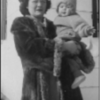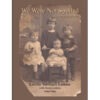In writing your memoir, the point of view with which yo approach your story will inform your message—or theme. The term “point of view” can have several meanings.
Who is telling the story?
It can refer to the character through which the story is being told.
This point of view option can have two aspects. In a memoir, of course, the character is generally the author. But there is a complication in that the character is usually different from the author. The author of the present is at a more advanced age—and one hopes level of sophistication and understanding—while the character is younger than the author—maybe by 15 or 24 or 32 years
You and I are not who we were then! So the author has two choices:
- tell the story from the view point of the character—with all the incomprehension and subjectivity that entails—or
- tell the story from the perspective of the author in the present—with the objectivity and understanding that is now the impetus to write the memoir.
These points of view will obviously lead to different renderings of the story.
It is also possible to tell the story by mingling both points of view. (This is often called the “authorial intrusion” and is used to explain something to the reader that the character does not know at this stage of life but that the reader may find useful to interpreting the story.)
These are examples of authorial intrusions:
- “I did not know then as I struggled with this issue that…”
- “Years later, I learned that my mother was autistic and this explained her cruelty at that moment.”
What ideas dominate the story?
Point of view can also refer to the writer’s philosophical or religious positioning. Whether the story is told in the character’s perspective or in the author’s, it will be colored by this mental and sometimes ideological point of view which is akin to theme.
In conclusion
As you write, be aware of the point of view from which you are writing. To complement this category, please go to my presentation of “narrator.”

Who is Your Memoir Narrator?
This may sound like a trick question, but it’s not. In fact, “who is your memoir narrator?” is a very serious question that will determine—or at least greatly influence—the tone and the theme of your narrative and how your reader views your story as being truthful.
Your choice of memoir narrator and the consequences of this choice.
[Free Membership required to read more. See below. ]
We'd love to have you access this content. It's in our members-only area, but you're in luck: becoming a member is easy and it's free.
Already a Member?
Not a Member Yet?

The Wrong Point of View in a Memoir Can Throw the Story
In 1996 and 1997, I composed about 200 pages of a memoir of my high school years and then it wasn’t going anywhere more than where it had been—mired in facts and details with no spirit. What I didn’t know was it had a wrong point of view problem
I merely stored it in various computers for years.
In the fall of 2013, I completed my mother’s memoir (We Were Not Spoiled). Because I was looking for a writing project I might devote myself to next, I picked up the high-school memoir again.
(Lest you think that I went to a high school like yours, let me assure you that I did not. I attended a Catholic high-school seminary. No, I’m not writing about sexual shenanigans—there was none of that whatsoever. I am writing about my life there between 1960 and 1964 and how it shaped me. This theme of identity is usual stuff for a memoir, but the setting is exotic in many ways and not at all usual. Almost none of you who are reading this have “been there”—trust me.)
Suddenly, after more than a decade and a half, the memoir spoke to me again!
“Write me! Write me!” it shouted. The text seemed “alive” again. [Free Membership required to read more. See below. ]
We'd love to have you access this content. It's in our members-only area, but you're in luck: becoming a member is easy and it's free.
Already a Member?
Not a Member Yet?

Point of View in a Memoir, Part 2
What is the importance of point of view in a memoir? In the previous post on point of view, I shared my challenge of trying to write material in a ghostwritten memoir that I knew to be true but which the subject was not forthcoming with. This is not “Truth” material. It is more the sort of reflection that a more intuitive, self-reflecting person might make to cast light on her/his life. The memoir in question is We Were Not Spoiled, a memoir I co-wrote with my mother Lucille Verreault Ledoux. [Free Membership required to read more. See below. ]
We'd love to have you access this content. It's in our members-only area, but you're in luck: becoming a member is easy and it's free.
Already a Member?
Not a Member Yet?

Point of View in a Memoir, Part 1
This is the first of several articles on point of view in a memoir.
My mother’s memoir, We Were not Spoiled, was a work of love that took me many years to bring to closure as I had other work to do to support myself that filled my days. Finally, she got to be quite a bit older, and beginning to feel urgency as many people do when in my position, I put the push on finishing her story.
I’ll be sharing with you in the next few blog entries my experience of writing someone else’s memoir. My mother was, after all, another person with her own agenda and experience. As the co-writer, my task was to listen to her and to write as close to her point of view as possible. How does one remain faithful to another’s point of view in a memoir? [Free Membership required to read more. See below. ]
We'd love to have you access this content. It's in our members-only area, but you're in luck: becoming a member is easy and it's free.
Already a Member?
Not a Member Yet?

Authority/Author: words with the same roots
A Few Steps to Assuming Writing Authority To those who struggle with whether they should write or continue to write a memoir, let me be clear: no one can give you the authority to write your story, to tell the truth about your life. You are the only person who can do that (Of course, […]
